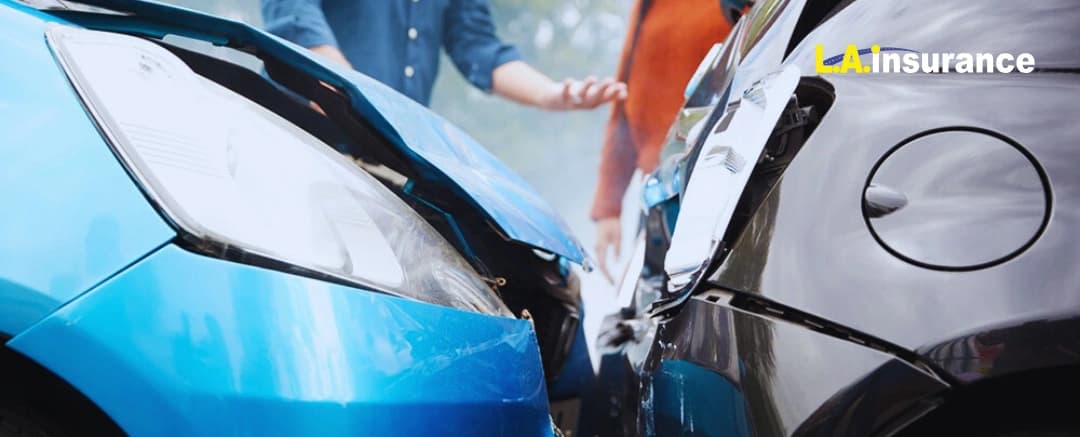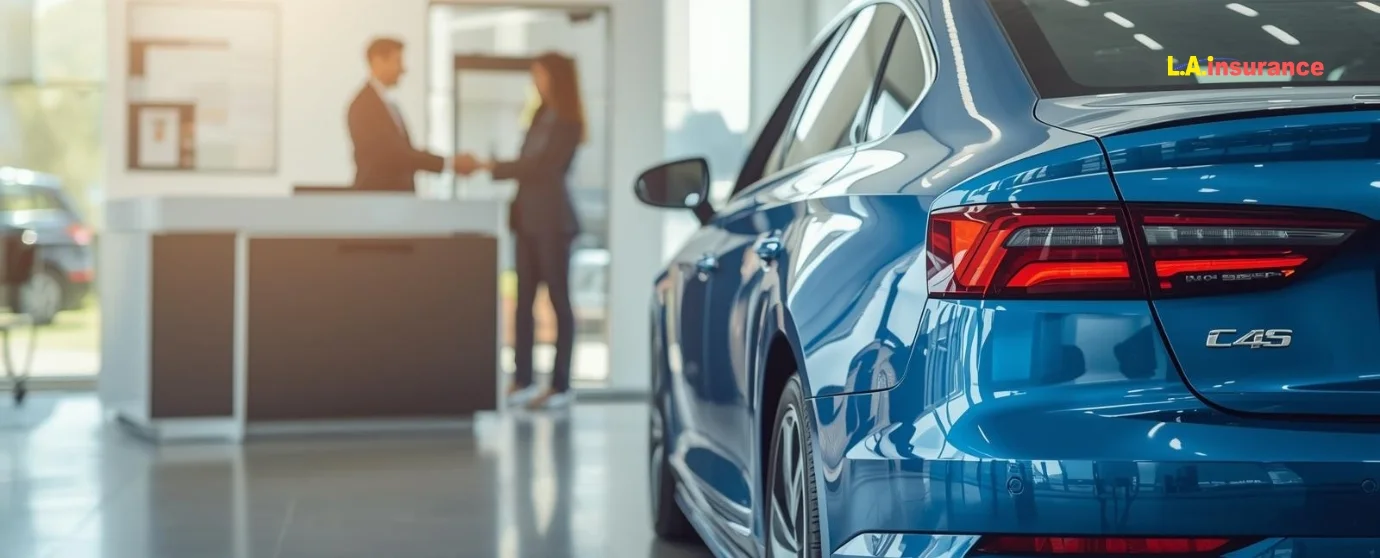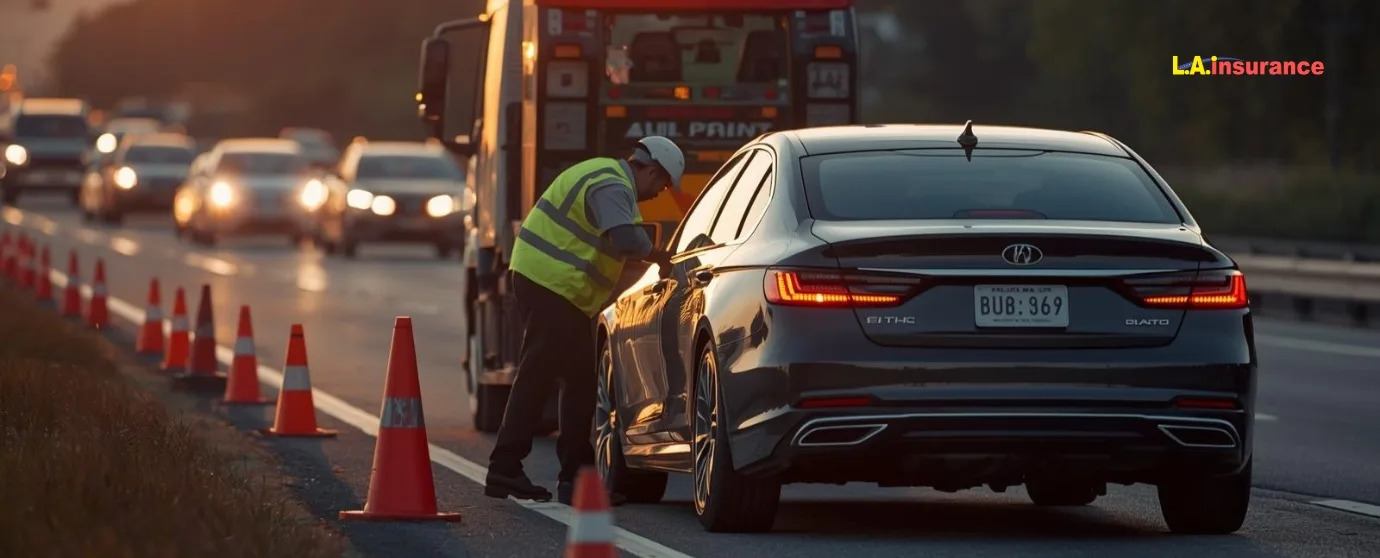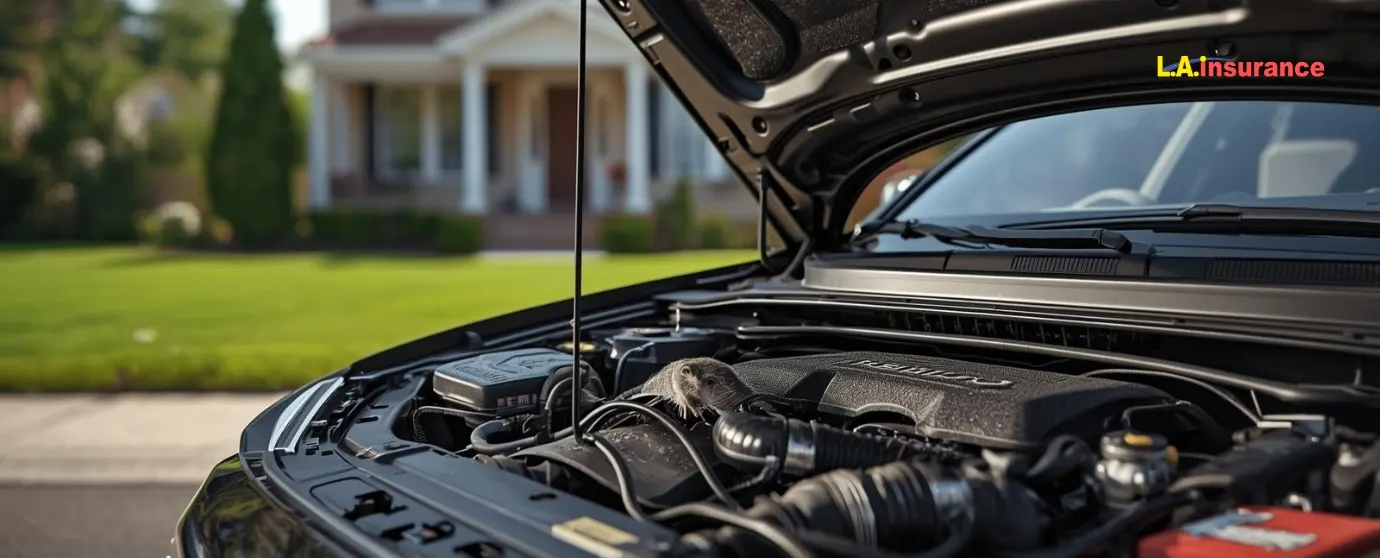
Publish Date: 02-06-2025
Auto Insurance
Last Updated: 15-12-2025
Liability Auto Insurance Vs. Collision Insurance Coverage
Auto liability coverage is something you cannot avoid. It's mandatory if you want to drive legally in the USA, except in New Hampshire. However, collision insurance is optional and can protect you in many situations where liability insurance might refuse your claim.
In this article, we’ll compare collision insurance vs. liability auto insurance, including their coverage, deductibles, and costs. We’ll also help you decide whether keeping collision insurance alongside minimum liability coverage makes sense.
Difference Between Liability Insurance and Collision Insurance
The biggest difference between liability auto insurance and collision insurance is who and what they cover. Liability insurance covers bodily injuries and property damage you cause to others in a car accident. It does not cover damage to your car. Collision insurance, on the other hand, pays to repair or replace your vehicle after a crash, regardless of fault.
Here's what liability auto insurance typically covers:
- Medical expenses for other drivers and passengers injured in an accident.
- Property damage liability covers damage to another person's vehicle or property.
- Legal fees if someone sues you after a car accident.
- Pain and suffering claims from injured parties.
Learn more about what is liability auto insurance and what it covers.
Collision insurance helps pay for damage to your car after:
- A collision with another vehicle.
- A single vehicle accident.
- Hitting a pothole, guard rail, or tree.
- Crashing into a fence or building.
- Your vehicle flipping over due to a road accident.
For a deeper look at what is collision insurance, read our in-depth article.
Please note that while liability insurance is required in most states (49 states), collision insurance is optional unless you have a car loan or lease. Both types of car insurance coverage serve different purposes but work together to provide full coverage insurance protection.
If you carry comprehensive car insurance protection along with liability and collision insurance, it means you’ve a full coverage car insurance policy that offers you financial safety in most unexpected situations.
Liability Auto Insurance Vs. Collision Insurance Comparison Table
The table below shows collision vs. liability auto insurance comparison to help you understand the key differences. It clarifies coverage, requirements, and costs so the policyholder can make a better decision when it comes to the auto insurance policy.
Feature | Liability Insurance | Collision Insurance |
Who It Covers | Other drivers, passengers, and property owners | Your own vehicle |
What It Covers | Bodily Injuries (e.g., medical expenses), property damage, legal fees | Damage to your car from a crash |
Required by law? | Yes, in most states | No, but required if your car is financed or leased |
Cover Natural Disaster? | No | No, comprehensive coverage is needed. |
Covers Theft or Vandalism? | No, it only covers others if you’re at fault | Yes, covers your vehicle no matter who caused the accident. |
Pays Regardless of Fault? | No, it only covers others if you’re at fault | Yes, covers your vehicle no matter who caused the accident |
Deductible Required? | No | Yes, typically between $100 and $1000 |
Cost | Depends, on average, the minimum liability insurance cost is $828 per year. | Vary depending on your state, vehicle value, driving record, and claim history. On average, the collision insurance cost is $814. |
Collision Insurance Deductible Vs. Liability Insurance Deductible
If you get into a car crash, you need to file a claim to receive reimbursement. But your insurance company only compensates you after you pay your deductible. If we simply put, deductible is the amount you pay out of pocket before your insurance coverage kicks in.
In case of liability car insurance, there’s no deductible amount. It covers bodily injuries and property damage for others if you’re at fault in a car accident. Collision insurance, however, requires a deductible before paying for damage to your car.
Typical collision deductibles range from $100 to $1,000. The right deductible amount always depends on several factors, including your budget and auto insurance policy. If you choose a higher deductible amount, it will lower your monthly insurance costs. But this will result in costly out of pocket expenses if you file a claim after an accident. In contrast, a lower deductible increases premiums but reduces out of pocket costs for repairs.
To choose the right deductible, consider:
- Your vehicle’s value. Older cars may not need collision coverage.
- Your savings account. Ask yourself whether you can afford a high deductible after an accident.
- Your loan or lease. Lenders may require collision insurance with a set deductible, along with liability and comprehensive auto insurance.
Learn More: When to Drop Collision Insurance?
Liability Insurance Vs. Collision Insurance Costs Comparison
When comparing liability insurance to collision insurance, cost differences are notable. Liability insurance, covering BI (Bodily Injuries) and PD (Property Damage) to other drivers when you’re at fault in an accident. To maintain minimum liability coverage, you will need to pay on average $828 per year or $69 per month.
Collision insurance costs you about $814 per year, as per data from Forbes. But this can vary a lot based on your previous claim history, the area you’re living in, vehicle type (make and model), and driving history. For instance, one single accident where you’re at fault can cause car insurance rates to rise by 43%.
Although the price for liability and collision insurance seems quite similar here. In general, liability insurance costs less than collision insurance. You can learn more about minimum car insurance costs by reading the article on how much is car insurance.
Should I Keep Collision Insurance Along with Minimum Liability Insurance?
Keeping collision insurance along with minimum liability insurance depends on your financial situation and the value of your vehicle. Your lender likely requires collision coverage if you have a car loan or lease. But if you own your car outright, you must decide whether maintaining extra insurance coverage is worth the costs.
Collision insurance protects your car in an accident, even if you’re at fault. Without it, you’ll have to pay out of pocket for repairs. If your vehicle’s actual cash value is low, it won’t be cost-effective to pay for it. Besides, if fixing or buying a new car is too expensive for you, you should get collision insurance.
If you’re looking for an affordable insurance agency, you can bundle your liability, collision, and comprehensive coverage with L.A. Insurance. We offer full coverage policy for your vehicle and protect you from most unforeseen events. Find an agent or dial us at (888) 500-6065. Get an affordable full coverage auto insurance quote right away.
Liability Insurance Vs. Collision Auto Insurance: The Bottom Line
Liability insurance covers bodily injuries and property damage to other drivers if you’re responsible for the accident. In contrast, collision insurance helps repair or replace your own vehicle, no matter who caused the accident. Apart from traffic accidents, collision coverage also financially protects you for most collision-related incidents, including single-vehicle accidents, hit-and-run cases. Liability is required by state law. Collision coverage, however, isn’t obligatory. Although it’s your choice to maintain any additional protection, we strongly recommend maintaining collision coverage if you’re driving a high-value vehicle. You can also learn about different types of car insurance coverage to understand which one is best for your vehicle.
Read Related Articles: Liability Insurance Vs. Full Coverage Auto Insurance
Frequently Asked Questions (FAQs)
When should you get liability auto insurance?
You must have liability auto insurance if you drive a vehicle. Most states require it by law. As we mentioned, it covers bodily injuries and property damage to others when you’re at fault in a car crash. You will face severe consequences, fines, and legal trouble if you don’t carry the minimum liability coverage required by your state. Learn what happens if you don’t have car insurance.
What is no-fault auto insurance?
No-fault auto insurance means your insurance policy pays for your medical expenses after an accident, regardless of fault. Currently, some states, for example, Michigan, require personal injury protection (PIP) under this system. It helps policyholders to get the reimbursement quickly after an accident. As there isn’t any fault to prove, you don’t have to wait for liability claims in a no-fault insurance state.
What does collision insurance cover?
Collision insurance covers damage to your car from a crash, regardless of fault. It helps repair or replace your vehicle if you hit another car, a pothole, or a guardrail.
What does liability insurance cover?
Any medical expenses or property damage bills resulting from accidents will be paid by the at-fault party’s insurer under liability insurance coverage. Also. If the other driver files a lawsuit against you, your liability insurance will pay for the legal fees as well as any valid claim for pain and suffering you cause to the accident victim.
What is full coverage insurance?
Full coverage insurance includes three main types: liability insurance, collision insurance, and comprehensive coverage. The comprehensive part protects you from accidents, theft, vandalism, and natural disasters. You likely already know what collision and liability insurance cover.
What’s the difference between liability and full coverage insurance?
Liability insurance only covers damage to others when you’re at fault. Full coverage insurance includes liability, collision, and comprehensive coverage. Consequently, it protects your car from accidents, theft, vandalism, fire, and natural hazards (e.g., storms, earthquakes, flood).
What’s the difference between collision and comprehensive insurance?
Collision insurance covers damage to your car from crashes regardless of fault. Comprehensive coverage pays if your car is stolen, or damaged by vandals. It also protects you from natural disasters, including flood damage, hail damage, earthquakes, and so on. To learn more, read our article on what is the difference between collision and comprehensive insurance.
Editorial Disclaimer
The information provided on this blog is for general informational purposes only and does not constitute professional insurance, legal, or financial advice. Coverage and rates are subject to individual eligibility, underwriting guidelines, and state availability. For specific questions regarding your policy or to get an accurate quote, please contact a licensed L.A. Insurance agent directly. We're an independent agency and not a direct insurance carrier. For more information on how we operate and handle your data, please see our Terms and Conditions and Privacy Policy.
Tag :
Auto insurance
Comercial Auto








